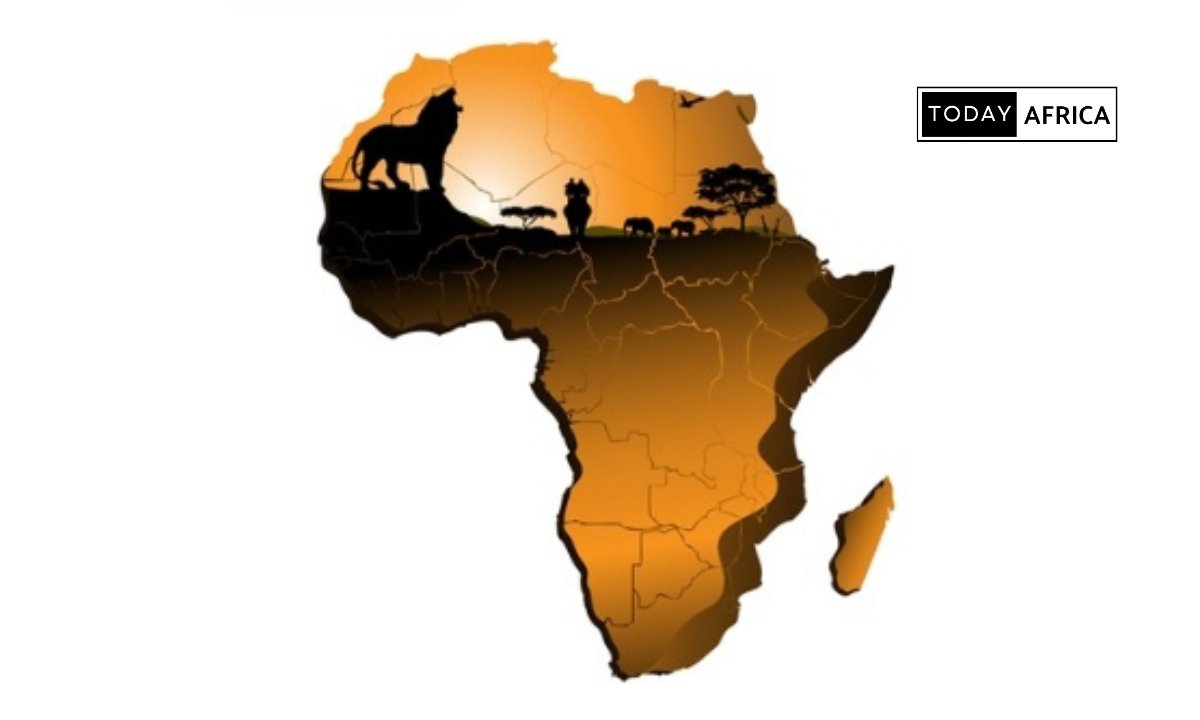This is African startup stories highlight, click here to read the previous editions. We understand that in the world of entrepreneurship, where the road ahead is often uncertain and challenging, startup stories serve as guiding lights.
They remind us that even the most celebrated business personalities faced struggles, rejections, and setbacks before achieving greatness. These startup stories will inspire you to persevere, innovate, and take risks in your own entrepreneurial endeavors.
Let’s jump into these lessons.
African Startup Stories of 16 Entrepreneurs We Interviewed
1. Startup story of Myra Samuelson

- Industry: Online teaching
- Country: Nigeria
- Year founded: 2018
Myra Samuelson is a certified and fun international teacher with over 7 years of teaching and educational management expertise. She inspires the genius in K-12 learners by leveraging technology and personalized e-learning contents.
She uses this skill set to help other teachers and educational institutions leverage educational technology(EdTech) and the online space to increase income, create fun and engaging E-content and expand their influence.
Entrepreneurial lessons from Myra Samuelson’s journey as the “Digiteacher”
1. Build on your passion and expertise: Myra’s entrepreneurial path began by leaning into what she loved—teaching—and the natural ability she demonstrated even as a child, tutoring classmates from primary school onward. By recognizing and formalizing her lifelong passion, she was able to differentiate herself in the crowded education space and create a unique value proposition for K‑12 learners and fellow educators.
2. Embrace technology to scale impact: Confronted with overcrowded classrooms and diverse learner needs, Myra turned to EdTech and personalized e‑learning as scalable solutions. Rather than seeing technology as a barrier, she viewed it as an enabler to reach every student—on‑site and online—demonstrating how entrepreneurs can leverage digital tools to extend both reach and revenue.
3. Cultivate a question‑driven, growth mindset: Myra’s shift into personalized e‑learning was sparked by persistent “why” questions—How can one teacher effectively reach dozens of students? Where can I find better strategies?—showing that continuous curiosity and a willingness to challenge the status quo are central to uncovering entrepreneurial opportunities.
4. Diversify and monetize your expertise: Beyond classroom instruction, Myra developed services—course creation, coaching, speaking—that allow her to earn in multiple currencies and platforms. This diversification underscores a critical entrepreneurial principle: package and monetize your expertise in varied formats (online courses, consulting, digital content) to stabilize income and fuel growth.
2. Startup story of Gerald Revocatus

- Industry: Edtech
- Country: Tanzania
- Year founded: 2020
Gerald Revocatus is the co-founder/CEO of Fiqra Technologies and Fiqra Academy, he’s focused on leading both organizations to the forefront of EdTech and digital transformation across the continent, creating scalable solutions to tackle social challenges.
With a background in product management, web development, and digital marketing, Gerald has been able to develop cutting-edge technologies that improve access to quality education, especially in underserved communities.
Entrepreneurial lessons from Gerald Revocatus’s journey at Fiqra
- Build and nurture meaningful relationships: Gerald emphasizes that “business starts with a good relationship,” noting that even the most brilliant solution needs strong partnerships to open doors to growth and new opportunities.
- Always stay compliant with regulations: Early on, Gerald had to close his first company, VijanaTech, due to overwhelming tax debt and regulatory non‑compliance. He warns that overlooking legal and tax obligations can not only sink a business but also jeopardize personal freedom.
- Do your homework—deeply understand the problem before building a solution: Drawing on the example of wells built for Maasai communities that went unused, Gerald highlights the danger of assuming you know a problem. He advises spending ample time on research and user insight to ensure solutions truly address real needs, rather than raising funds and developing offerings that ultimately fail to resonate.
3. Startup story of Arnold Nyendwa

- Industry: Manufacturing
- Country: Zambia
- Year founded: 2017
Arnold Nyendwa, an entrepreneur and CEO of AFNON, has achieved remarkable success. His innovative spirit has led to the development of the Juvin stainless hybrid stove, a revolutionary product that operates on three energy sources: gas, electricity, and charcoal pellets.
This stove has garnered global recognition, earning a spot among the 1000 Efficient Solutions in the world, as accredited by the World Alliance for Efficient Solutions under the Solar Impulse Foundation in Switzerland.
Under Nyendwa’s leadership, AFNON has accumulated nearly 40 global awards for its clean tech innovation, solidifying its position as a pioneer in the industry. The company made history by becoming the first African-owned innovative product to be nominated for and win the esteemed Sir Henry Royce Award in the UK in October 2023.
Entrepreneurial lessons from Arnold Nyendwa’s journey
- Embrace long‑term commitment and perseverance: Nyendwa underscores that breakthrough often comes only after sustained effort. He spent “10 years straight” refining his ideas before seeing tangible success, reminding entrepreneurs that persistence—even in the absence of immediate results—is essential to realize big visions.
- Articulate a clear vision with defined goals
Success begins with knowing exactly what you want and setting concrete timelines. Nyendwa advises: “Define exactly what you want to achieve, set your timelines, and stick to them,” ensuring every action is aligned with a well‑articulated roadmap. - Cultivate strategic partnerships and diverse financing: Hardware ventures require significant capital and specialized assets. Nyendwa combined loan financing (banks covering 80%), equity partnerships (Chinese and UK collaborators), and grant opportunities to fund AFNON’s growth.
4. Startup story of Adedayo Adegoke

- Industry: Fintech
- Country: Nigeria
- Year founded: 2023
Adedayo Adegoke is the founder/CEO of Payskul, a digital platform that helps Parents and Students flexibly access low interest rates to pay tuition fees, books, uniforms, excursions amongst other school related financial demands.
He has worked with key frontend, backend and UI/UX developers to build a seamless E-Logistics Platform which was adopted by the low-class/unlearned citizens, thereby generating thousands of dollars in monthly revenue.
Entrepreneurial lessons from Adedayo Adegoke
1. Solve a real, personal pain point
Adedayo’s idea sprang directly from witnessing students being sent away for unpaid fees—an experience he’d endured himself. Building on that firsthand insight ensured Payskul addressed a genuine need in the market.
2. Leverage strategic partnerships to bridge resource gaps
Rather than funding loans entirely in‑house, Payskul partnered with banks and finance houses to provide liquidity, while angel investors supported platform development. This approach let the team focus on core operations and product growth without overextending its capital.
3. Cultivate perseverance and a supportive team
Adedayo emphasizes that “even when times are tough… the courage for you to keep striving” is vital. He also stresses the importance of surrounding yourself with people who believe in your vision, and prioritizing teamwork to overcome challenges.
5. Professional story of Enobong Essien

- Industry: Law enforcement
- Country: Nigeria
Enobong Essien is a lawyer with the Economic and Financial Crimes Commission (EFCC), dedicated to upholding law and justice as both a prosecutor and an Anti-Money Laundering Reporting Officer.
As a member of the CFE Exam Development Committee at ACFE, she plays a key role in shaping the future of fraud examination, ensuring certification standards align with evolving industry practices.
Her legal expertise, combined with practical experience in fraud detection, reinforces efforts to maintain integrity within the financial sector.
6. Startup story of Lumbie Mlambo

- Industry: NGO
- Country: Zimbabwe
- Year founded: 2016
Lumbie Mlambo is the founder/CEO of JB Dondolo is a nonprofit organization in Zimbabwe named after her late father, JB Dondolo. Their mission is to remove barriers of access to clean water, sanitation, and hygiene in underserved and impoverished communities to reduce poverty and promote gender equity. Their vision is to see a world where clean water is not an obstacle to pursuing a better and more equitable life.
Entrepreneurial lessons from startup story of Lumbie Mlambo
- Turn your words into action: Lumbie emphasizes that she “doesn’t just talk for the sake of talking” but ensures that “what I say is what I’m going to do” – highlighting that credibility and impact come from following through on your commitments.
- Be resourceful and self‑fund when necessary: Faced with funding biases—grants being dismissed because her NGO is women‑founded—she and her team “fund ourselves” and “become very creative” in financing their work, demonstrating the importance of alternative funding strategies when traditional sources fail.
- Leverage your expertise and partnerships for sustainable solutions: By applying her background in technology and security, Lumbie collaborates with science and tech institutions to design water systems that are “secure, sustainable, affordable, and accessible,” showing how domain expertise plus strategic partnerships can drive scalable, community‑specific impact.
7. Startup story of Sonja Cilliers & Maryke Groenewald

- Industry: Consulting
- Country: South Africa
- Year founded: 2023
Sonja Cilliers & Maryke Groenewald are the co-founders of The Professional Mind Resilience Institute, a brand that empowers legal practitioners to attain unparalleled excellence, find balance in their personal lives, and transcend the boundaries of traditional legal practice in South Africa.
The business is on a mission to enhance cognitive abilities, personal resilience, and professional expertise through comprehensive courses and workshops tailored specifically for legal professionals.
Entrepreneurial lessons from Sonja Cilliers and Maryke Groenewald
- Let passion guide gap‑finding: Successful ventures often start where passion meets a real market need. Sonja recognized a lack of specialized resilience and mindset training for legal practitioners and, driven by her own struggles and passion for change, turned that gap into a purposeful business mission.
- Build on complementary strengths: Partner with people whose skills and experiences complement your own. Sonja’s deep legal expertise paired with Maryke’s background in neuro‑coaching allowed them to co-create tailored solutions that neither could have developed alone—combining industry insight with proven coaching methodologies.
- Design for your customers’ constraints: Understand your users’ real-world limitations and keep your offerings simple and time‑efficient. Lawyers are notoriously busy, so PMRI’s courses and platform are intentionally short, focused, and self‑paced—ensuring the highest adoption and impact.
8. Startup story of Grayson Julius

- Industry: Software design
- Country: Tanzania
- Year founded: 2015
Grayson Julius is the Co-founder and Business Development Director at iPF Softwares, an award-winning digital transformation company headquartered in Dar es Salaam.
Led the development and launch of digital solutions deployed in over 15 African countries, driving economic growth and technological advancement across the continent.
His extensive background in product management, Agile software engineering, and design enables me to lead cross-functional teams in conceiving, developing, and deploying web and mobile applications across diverse sectors.
Entrepreneurial lessons from Grayson Julius’ journey
- Embrace bootstrapping and learn iteratively: Rather than waiting for the “perfect” go‑to‑market plan, Julius and his co‑founders simply took on one client at a time, used customer feedback to refine their offerings, and grew organically. This “save one customer after another” approach kept them afloat financially and drove continuous improvement in both product and process.
- Prioritize culture and potential over credentials: When scaling iPF Softwares, Julius focused on hiring people with the right attitude and cultural fit rather than fixating on GPAs or pedigreed schools. By investing in training and mentoring, he built a team that could grow into senior roles—demonstrating that passion and coachability often outshine formal qualifications.
9. Startup story of Rinse Jacobs

- Industry: Fintech
- Country: South Africa
- Year founded: 2024
Rinse Jacobs is the co-founder/CEO of Zazu, a modern banking experience built for entrepreneurs and scaling businesses shaping the future of the continent.
Zazu is founded with the idea of making banking better for African founders and SMEs by providing them with a powerful bank account at the core, combined with invoicing, bookkeeping and cash flow management tools – making banking feel less like an obstacle and more like a catalyst for growth.
Entrepreneurial lessons from the startup story of Rinse Jacobs
1. Embrace resilience and adaptability
Jacobs emphasizes the importance of perseverance through both highs and lows in the entrepreneurial journey. As a founder remain adaptable and acknowledge that challenges are inevitable but can be overcome with determination and a positive outlook. This mindset is crucial for navigating the uncertainties of building a business.
2. Prioritize cultural fit in team building
When expanding his team, Jacobs stresses the significance of hiring individuals who align with the company’s values and culture. We suggest asking yourself whether you would want to have 10 more people like a candidate before making a hiring decision.
3. Manage your time proactively
Jacobs advises entrepreneurs to take control of their schedules by time-blocking and avoiding being overwhelmed by meetings. He highlights the importance of setting aside dedicated time for deep work and reflection, which are essential for creativity and strategic thinking.
10. Startup story of Omowunmi Omoseyindemi

- Industry: Logistics
- Country: Nigera
- Year founded: 2021
Omowunmi Omoseyindemi, co-founder of FastRyders, a startup revolutionizing last-mile logistics by delivering seamless and efficient solutions. With a passion for innovation and creating exceptional customer experiences, she is transforming the logistics space while driving operational excellence.
Omowunmi’s commitment to environmental sustainability is deeply rooted in her academic background, holding a Bachelor’s Degree in Biochemistry and a Master’s Degree in Environmental Management.
Entrepreneurial lessons from the startup story of Omowunmi Omoseyindemi
- Embrace unconventional paths: Omowunmi’s initial pursuit of medicine shifted to biochemistry, a change she later viewed as a blessing. Her diverse experiences—from student ambassadorships to shoe-making—highlight the value of adaptability and the unexpected opportunities that can arise from detours.
- Identify and address market gaps: Facing challenges with unreliable delivery services in her shoe business, Omowunmi co-founded FastRyders. The company not only offers logistics solutions but also empowers riders through asset financing, addressing both operational inefficiencies and financial inclusion.
- Leverage tech for scalability: FastRyders integrates digital tools like real-time tracking and intelligent dispatching to optimize delivery operations. This tech-driven approach enhances efficiency and positions the company for growth in the competitive logistics sector.
11. Startup story of Chioma Ekeoma

- Industry: Online teaching
- Country: Nigera
- Year founded: 2021
Chioma Ekeoma, founder of Adaoma Igbo Language Services (ADILS), an e-learning platform on a mission to restore and promote the use of the Igbo language on the lips of its natives and interested persons globally.
The e-learning platform has taught the language to students (children and adults) across the US, UK, Canada, Australia, Germany, UAE, Ivory Coast, Dublin, and Nigeria, helping them to understand the Igbo language and communicate in it.
Entrepreneurial lessons from the startup story of Chioma Ekeoma
- Leverage passion and skills: Chioma’s transition from a medical laboratory scientist to an Igbo language educator was fueled by her innate passion for teaching and her cultural heritage. Recognizing teaching as her “motivational gift,” she seamlessly integrated her professional skills with her personal interests to address a pressing cultural need.
- Start small and scale strategically: Chioma initiated her entrepreneurial journey by offering personalized Igbo lessons, gradually expanding her reach through word-of-mouth and strategic partnerships. By collaborating with organizations like NdiIgbo in Nova Scotia and the Anambra State Association in Dublin, she amplified her platform’s impact. This approach highlights the effectiveness of starting small, building credibility, and scaling through deliberate collaborations.
- Continuously invest in quality and innovation: Committed to delivering top-notch educational experiences, Chioma invested in enhancing her platform’s quality by refining her curriculum, incorporating multimedia tools, and ensuring reliable infrastructure. Her dedication to continuous improvement and innovation not only elevated the learning experience but also positioned her platform as a reputable brand in the e-learning space.
12. Startup story of Enock Nkulanga

- Industry: NGO
- Country: Uganda
- Year founded: 2017
Enock Nkulanga is the founder of LeadMinds Africa, a non-profit organization equipping and connecting the next generation of entrepreneurial leaders in Africa. He is a leading development practitioner whose career spans education, community building, youth leadership development, and advocacy. Enock Nkulanga’s work was recognized by the President of the United States, Barack Obama in 2018 as he delivered the Mandela Lecture in Johannesburg, South Africa.
Entrepreneurial lessons from the startup story of Enock Nkulanga
- Transform personal experiences into purposeful ventures: Enock’s upbringing on a small farm in Uganda, observing his mother’s entrepreneurial endeavors and his father’s livestock trading, instilled in him a foundational understanding of business and resilience. These early experiences fueled his passion for community development and led to the creation of LeadMinds Africa, aiming to empower young leaders across the continent.
- Leverage education as a catalyst for broader impact: Recognizing the transformative power of education, Enock emphasized its role in expanding one’s worldview beyond immediate surroundings. His own educational journey shifted his perspective from a village-centric view to a global outlook, motivating him to provide similar opportunities for youth through leadership development programs.
- Cultivate a Pan-African vision to address continental challenges: Enock’s commitment to Pan-Africanism is evident in his efforts to unite individuals from diverse backgrounds to collaboratively tackle Africa’s complex issues. By fostering cross-border collaborations and emphasizing shared values, he underscores the importance of collective action in driving sustainable change across the continent.
13. Startup story of Oluwafemi Ogunniyi

- Industry: Hosting service
- Country: Nigeria
- Year founded: 2021
Oluwafemi Ogunniyi is the Founder of FinxHost, a dedicated and developer friendly web hosting company. He is a driven and innovative professional with over five years of experience in sales, business development, front-end development, and digital marketing.
Entrepreneurial lessons from the startup story of Oluwafemi Ogunniyi
- Never give up—persistence pays off: Ogunniyi emphasizes the importance of unwavering determination. He recounts early challenges, such as server downtimes and skepticism from peers, but underscores that steadfast belief in one’s vision and continuous learning are crucial for eventual success.
- Deeply understand your business: He advises entrepreneurs to possess a comprehensive understanding of their business operations. By being knowledgeable about various departments, founders can make informed decisions, optimize processes, and avoid being misled by others.
- Be involved in every aspect of your business: Ogunniyi highlights the necessity for founders to be actively engaged in all facets of their enterprise. This involvement ensures that they can effectively manage, scale, and navigate challenges, reinforcing the importance of hands-on leadership.
14. Startup story of Keletso Sesi Twala

- Industry: NGO
- Country: South Africa
- Year founded: 2018
Keletso Sesi Twala is the founder of Shine For Hope Developers (S4HD), a non-profit organization dedicated to fostering holistic growth and empowerment within the community. Their initiatives encompass education, technology, arts and cultural performance, sports, and nutrition. Through their after-school program, they provide academic support, access to technology, and opportunities for creative expression in arts and culture.
Entrepreneurial lessons from the startup story of Keletso Sesi Twala
1. Transform personal challenges into purposeful ventures
Keletso’s early life was marked by hardship, including the loss of her grandmother and financial difficulties that led her to drop out of school temporarily. These experiences became the catalyst for her entrepreneurial journey, inspiring her to create S4HD to support learners facing similar challenges. Her story underscores the power of leveraging personal adversity to identify gaps in society and develop solutions that address those needs.
2. Implement a sustainable hybrid model
S4HD operates on a hybrid model that combines paid services with free offerings. While academic support programs are fee-based, the organization ensures that orphans and underprivileged children receive these services at no cost. This approach not only sustains the organization’s operations but also ensures inclusivity, demonstrating that social impact and financial sustainability can coexist.
3. Leverage community and partnerships for growth
Recognizing the importance of community support, Keletso has engaged donors and partners to bolster S4HD’s initiatives. Contributions such as school uniforms from Mr. Price and reading materials from other donors have been instrumental in expanding the organization’s reach. This highlights the significance of building strong networks and partnerships to amplify impact and resource availability.
15. Startup story of Zainab Saidu Idris

- Industry: Technology & Education
- Country: Nigeria
- Year founded: 2023
Zainab Saidu Idris is a dynamic tech innovator and community leader passionate about bridging the gap between global technology advancements and local communities.
As the Creative Director of the Creativity Enthusiast Network, Zainab channels her expertise into making complex tech concepts accessible to Hausa-speaking audiences, embodying her brand’s slogan: Local Voice, Global Impact.
In addition to her creative work, Zainab is deeply involved in community development. She serves as the Assistant Program Manager at Data Science Nigeria and leads multiple initiatives, including Google Women Techmakers.
Entrepreneurial lessons from the startup story of Zainab Saidu Idris
1. Revisit your ‘Why’ to navigate challenges
Facing setbacks, Zainab found value in returning to her foundational motivations. She shares that during challenging times, she revisited her initial reasons for starting her venture, which helped her realign her goals and strategies. This introspection can be a powerful tool for entrepreneurs to overcome obstacles and stay focused on their mission.
2. Localizing content enhances accessibility and impact
Recognizing a gap in tech literacy among Hausa speakers, Zainab founded the Creativity Enthusiast Network to translate complex digital concepts into the Hausa language. By doing so, she made technology more accessible to her community, demonstrating that tailoring content to the audience’s language and cultural context can significantly increase engagement and understanding.
16. Startup story of Shalom Bamigboye

- Industry: Technology & Education
- Country: Nigeria
- Year founded: 2023
Shalom Bamigboye is the co-founder/CEO of Entobo, an Integrated Experience Platform (IXP) designed to empower companies to build and maintain lasting customer relationships and deliver service with ease.
By blending his expertise in privacy and business strategy, Entobo is positioned to help companies achieve seamless customer interactions. Shalom is an accomplished entrepreneur and recognized information privacy expert with a passion for driving business growth and innovation.
Entrepreneurial lessons from the startup story of Shalom Bamigboye
- Identify and solve real problems: Shalom emphasizes that entrepreneurship begins with a genuine desire to address existing challenges. Rather than merely identifying issues, he advocates for actively seeking solutions. This mindset led to the creation of Entobo, a platform designed to streamline business operations by integrating communication, project management, and collaboration tools, thereby eliminating inefficiencies caused by siloed workflows.
- Embrace agility and adaptation: In the startup environment, flexibility is crucial. Shalom’s experience underscores the importance of being open to feedback and willing to pivot when necessary. Initially focused on developing a Customer Relationship Management (CRM) system, Entobo evolved its approach after engaging with clients, leading to a more comprehensive solution that better meets market needs.
Leave a comment below and follow us on social media for update:
- Facebook: Today Africa
- Instagram: Today Africa
- Twitter: Today Africa
- LinkedIn: Today Africa
- YouTube: Today Africa Studio
















